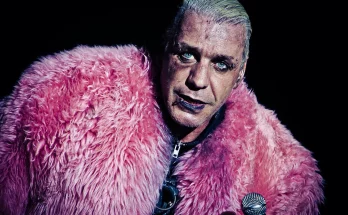Giants of heavy sound often emerge in moments when music needs reinvention, when younger generations crave something raw, different, and emotionally connected to their struggles. Over the past three decades, three bands in particular have stood as titans reshaping the very fabric of rock and metal while speaking directly to fans across the world: Linkin Park, Slipknot, and Rammstein. Each group carved its identity through innovation, theatricality, and fearless exploration of sound, but all three shared one thing in common: they transcended being “just bands” and became movements, symbols of rebellion, healing, and raw expression for millions of fans. Their journeys are not just about success in charts or tours, but about the cultural impact that reshaped what rock and metal meant to entire generations from the late 1990s into the present day.
When Linkin Park first stormed onto the scene with Hybrid Theory in 2000, the band offered a sonic revolution. Their blend of rap, rock, electronic textures, and emotional vulnerability opened doors for countless listeners who had never quite connected with the grunge that dominated the earlier part of the decade. With Mike Shinoda’s rapping verses interwoven with Chester Bennington’s anguished yet melodic screams, Linkin Park struck chords that spoke directly to young people wrestling with identity, family strife, and mental health. Songs like “In the End” and “Crawling” became anthems not only because of their radio-friendly hooks but because they gave words to emotions many listeners had never dared to voice. Linkin Park’s sound was polished but powerful, industrial yet accessible, and above all, deeply human. What set them apart was their ability to bridge audiences: they were heavy enough for metalheads to respect, melodic enough for mainstream radio to embrace, and experimental enough to satisfy those searching for something new. As they evolved with albums like Meteora, Minutes to Midnight, and A Thousand Suns, Linkin Park never stood still. Instead, they continually tested the boundaries of what rock could be, incorporating electronic experimentation, political themes, and orchestral arrangements. This refusal to stagnate often polarized critics but kept fans hooked on a journey that was as much about artistic growth as it was about staying authentic. Even after Chester Bennington’s tragic death in 2017, the band’s legacy continues to influence younger artists blending genres and addressing raw emotional themes. Their music stands as proof that rock could still serve as a lifeline in an age when many declared the genre dead.
If Linkin Park symbolized catharsis and hybridization, Slipknot embodied chaos, rage, and theatrical spectacle. Emerging from Des Moines, Iowa—a city hardly associated with rock stardom—the band defied every expectation by turning their outsider status into fuel for an unrelenting sound. Nine masked members pounding away in synchronized fury created a live experience unlike anything else in heavy music. Slipknot’s self-titled debut in 1999 was an assault on the senses, with its abrasive riffs, guttural growls, pounding percussion, and disturbing imagery. Yet beneath the shocking exterior, Slipknot’s music resonated deeply with fans who felt alienated and angry. The masks, once dismissed as gimmicks, became symbols of anonymity and unity, a way to strip identity and focus purely on emotion and sound. Albums like Iowa, Vol. 3: The Subliminal Verses, and All Hope Is Gone showcased the band’s ability to evolve from sheer brutality to nuanced experimentation while never losing their core intensity. Corey Taylor’s vocal versatility—from blood-curdling screams to haunting melodies—allowed Slipknot to expand their sonic palette, making songs like “Duality” and “Snuff” powerful emotional outlets for fans. Slipknot redefined what it meant to be heavy, not just musically but culturally. They brought a theatricality that merged horror aesthetics with raw authenticity, creating a sense of community among fans who proudly identified as “maggots,” the name given to their devoted following. Slipknot’s rise proved that mainstream success and uncompromising heaviness could coexist. Their Grammy wins, festival headlining slots, and global tours cemented them as one of the most important heavy bands of the modern era. Yet their impact runs deeper than awards: for fans, Slipknot provided an unapologetic soundtrack to anger, loss, and defiance, validating feelings often ignored by the broader culture.
Across the Atlantic, Rammstein brought their own brand of heavy music revolution, one that fused industrial metal with theatrical performance art. Founded in Berlin in the mid-1990s, Rammstein embraced their German heritage unapologetically, singing almost exclusively in their native language while crafting music that pulsed with mechanical precision. The pounding riffs, electronic elements, and Till Lindemann’s deep, commanding vocals created a sound as intimidating as it was hypnotic. Unlike many of their contemporaries, Rammstein leaned heavily into performance, turning concerts into pyrotechnic extravaganzas that blended shock value with artistry. Fire cannons, elaborate stage props, and controversial imagery made their shows legendary, pushing the boundaries of what a live rock experience could be. Songs like “Du Hast” and “Ich Will” became international hits despite language barriers, proving that emotion, rhythm, and spectacle could transcend linguistic limitations. Rammstein’s lyrics, often provocative and laced with dark humor or social critique, courted controversy but also invited fans to think critically about taboos, politics, and cultural norms. Over the years, albums like Mutter, Reise, Reise, and their 2019 untitled record solidified Rammstein’s position as one of the most influential industrial metal bands in history. Their ability to balance provocation with artistic integrity allowed them to endure where others might have faded, and their continued global tours attract massive crowds that span generations.
Together, Linkin Park, Slipknot, and Rammstein did more than simply entertain; they redefined what heavy music could mean in the 21st century. Each represented a different facet of heaviness: Linkin Park through emotional accessibility and genre fusion, Slipknot through chaos and catharsis, and Rammstein through industrial power and theatrical excess. Collectively, they broke down cultural and musical barriers. Linkin Park showed that rock could coexist with hip-hop and electronica without losing its edge. Slipknot demonstrated that even the most extreme sounds could achieve mainstream recognition while fostering a deeply loyal community. Rammstein proved that language, geography, and controversy need not be obstacles to global success when combined with vision and artistry. Their influence is visible in the rise of countless younger acts. Bands like Bring Me the Horizon, Architects, and even artists outside the metal sphere such as Machine Gun Kelly and Post Malone cite these giants as inspirations. Streaming platforms further amplified their reach, ensuring that new generations discover these sounds decades after their initial releases. In a cultural sense, they gave permission for fans to embrace vulnerability, rage, or cultural pride without apology. They validated emotions often dismissed by mainstream society and turned them into powerful art that united fans across continents.
The endurance of their music also speaks to something larger: the idea that rock and metal, often declared “dead” by critics, continually reinvent themselves through innovators who refuse to follow trends. Linkin Park, Slipknot, and Rammstein each refused to fit neatly into existing categories, instead forging their own paths that forced the industry to adapt. They thrived not because they chased radio trends but because they created movements larger than themselves. Fans did not just buy their albums; they lived them, carried their messages into personal struggles, and found identity in their art. This symbiosis between band and audience made their legacies enduring. Even as the industry shifts toward streaming and hip-hop dominance, their music continues to fill stadiums, inspire festivals, and dominate playlists.
What unites these bands most is the universality of their impact. Linkin Park reached those silently suffering, Slipknot gave voice to rage and alienation, and Rammstein challenged cultural norms with fearless spectacle. They redefined not only sound but also the role of the artist in society: musicians as therapists, provocateurs, and architects of community. Their stories remind us that heavy music is not just about distortion or volume but about connection, authenticity, and expression in its rawest forms. They proved that even in the most chaotic, darkest sounds, there exists beauty, healing, and unity.
As new generations step into the world of heavy music, they will inevitably discover these giants who paved the way. Linkin Park, Slipknot, and Rammstein remain not just relics of a past era but living testaments to the enduring power of reinvention, intensity, and fearless artistry. In redefining rock and metal for their generation, they ensured that the genres would never stagnate, instead evolving endlessly, always ready to give voice to the next wave of dreamers, rebels, and survivors who need them most.



